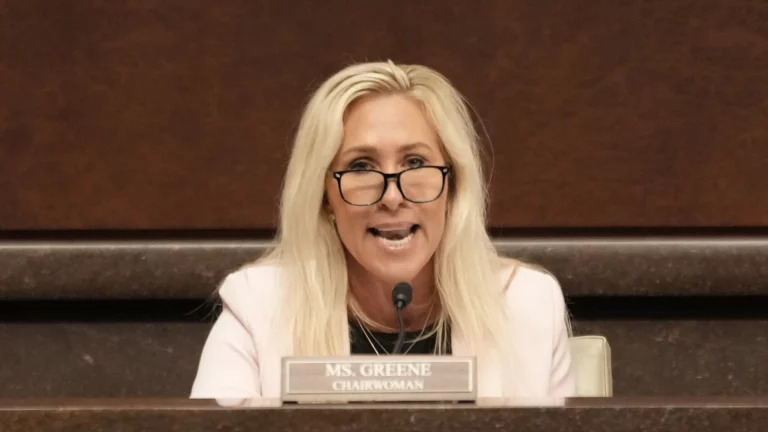(By Rabbi Yair Hoffman for the Five Towns Jewish Times)
By now there are thousands of frum families that have joined a healthcare ministry run by Christians in order to save money. The savings are significant – approximately ten thousand dollars per year.
There are four main health-sharing ministries in the United States and each of them have their own statement of shared beliefs. Someone who wishes to benefit from the savings has to sign on to the statement of shared beliefs – something that is not necessarily so proper. There are questionable statements in it that could be interpreted in a manner that is not so appropriate for an observant Jewish family.
There is, however, a new development in which a Healthcare ministry has now been established under observant Jewish auspices. It is called United Refuah Healthshare. (unitedrefuahhs.org Phone: (440) 772-0700).
Healthcare ministries have become popular alternatives to ObamaCare (also known as the Affordable Care Act) because their rates are far lower than traditional health insurance policies. Here is how they work:
HOW THEY WORK
Members of a shared health ministry can opt out of ObamaCare and not have to pay the penalty specified in the IRS Tax form for doing so. Members of the plan send in their monthly “contribution” to an escrow account. The ministry disburses payment for eligible medical bills.
The health ministry usually has a member advocate that often negotiates discounts off the fees and usually shares the rest of the bill.
There are four main cost-sharing ministries in the United States that have a combined total of about a half-million members. According to a February 2015 New York Times article, these ministries have achieved a remarkable level of member satisfaction.
One organization, Medi-Share, requires members to “live by biblical standards”– no tobacco, no illegal drugs, and no activities “outside of traditional Christian marriage.” Samaritan Ministries, with headquarters in Peoria, Ill., requires a pastor’s approval of medical expenses. Liberty HealthShare has a statement of shared beliefs that anyone who wishes to join must sign onto. Some Poskim have permitted joining Liberty Healthshare because of their somewhat pareve statement of beliefs.
Statement of Shared Beliefs
The statement Liberty Healthshare statement that is under question is as follows:
“We believe every individual has a fundamental religious right to worship the G-d of the Bible in his or her own way.”
May Jews sign onto this? Firstly, there is the issue of the G-d of the Bible. Since this is a Christian organization, we must assume that they mean the Christian bible. Like it or not, theologians of the Christian faith have a slightly different conception of G-d than Jews and non-Trinitarian Christians do. (The more kosher ones are (1) Christadelphians, (2) Christian Scientists, (3) Dawn Bible Students, (4) Friends General Conference, (5) Iglesia ni Criso, (6) J’s Witnesses, (7) Living Church of G-d, (8) Oneness Pentecostals, (9) Members Church of G-d International, (10) Unitarian Universalist Christians, (11) The Way International, (12) The Church of G-d International, and (13) the United Church of G-d.)
Two Mitigating Rationales
There are those who are members of mainstream denominations of Christianity that do not truly share the theology of their denomination. Their conceptualization of the nature of G-d is what Rav Elchonon Wasserman describes as intuitive. In an unofficial survey, a good percentage of this country falls under this category.
There is also the view found in some poskim that modern-day practitioners of the religion are just following the ways of their parents (Ma’aseh avoseihem b’yadeihem), and do not truly believe in the theological underpinnings. (See Shulchan Aruch, YD 148:12; Bach ibid; Responsa Yehudah Yaaleh YD #170.)
It perhaps can be assumed that the founders (and writers) of this Christian Health ministry are from the Rav Elchonon Wasserman “intuitive” types and, therefore, the G-d of the Bible would be kosher.
FUNDAMENTAL RELIGIOUS RIGHT
But let’s get to the next issue–believing that any individual has a fundamental religious right to worship G-d in his or her own way.
What does “fundamental religious right” mean? Does this refer to an inalienable universal natural law? Or does it refer to a fundamental religious right in America? If it is the latter, then it should not be problematic. If it is the former, then we have some new questions. We have to differentiate between Jews and gentiles, who have more fundamental religious rights according to the Torah. We shall see what this means shortly.
GENTILES HAVE MORE LATITUDE IN BELIEF
The Rema in Orach Chaim 156 cites the view of the RaN (end of first chapter of tractate AZ). He writes that in modern times, when the gentile mentions idol-worship, he is intending for the creator of Heaven and Earth; it is just that he is looking at it as if it was shituf–i.e. both G-d and (l’havdil) the avodah zarah entity who created things. He writes further, and this is the key idea, that “gentiles are not commanded against ‘shituf’–a belief in both G-d and (l’havdil) the avodah zarah entity.”
The reading of this Rema is the subject of great controversy. Does he mean that a gentile is not commanded against a belief in G-d plus avodah zarah? A look at the RaN itself shows that his view is that there is no special prohibition of a gentile swearing to avodah zarah, but not that there is no prohibition in believing that avodah zarah can coexist with G-d.
Two Dissenting Views
One might, therefore, be tempted then to read the Rema as only referring to a gentile taking a business oath. Yet the Rema elsewhere (Darchei Moshe YD 151) clearly refers to more than just permission to cause them to swear in the name of the Creator. Rabbi Akiva Eiger, in a letter to his son Rav Shlomo (new responsa, end), writes that one may not rely on the lenient view of this Rema.
Yet we find that the Chasam Sofer, Rabbi Akiva Eiger’s own son-in-law, writes in his Toras Moshe (Parashas Vayishlach) that gentiles are not commanded on shituf. There is also a fascinating Rashi on Tehillim 6:11 that finds fault with the gentile nations for making idol-worship central and the Holy One Blessed be He–minor. The takeaway from this Rashi is that it is the lack of centrality rather than actual “sharing” that is what is faulty. The Maharatz Chajes (Horios 5) also writes clearly that a gentile is not commanded in “shituf.”
So in regard to gentiles, the statement would be permitted according to the Chasam Sofer’s reading of the Rema, the Rashi on Tehillim and the Maharatz Chajes. According to Rav Yosef Karo and Rabbi Akiva Eiger it would still be a problem.
NOT FOR JEWS
But this would only work for gentiles, not Jews. A Jew is forbidden to believe in shituf. There is a careful protocol in the Torah as to how a Jew must serve Hashem, which is distinctively not “in his or her own way.”
ANOTHER ANGLE
We can perhaps deal with this issue, too. Both Rav Tzadok haKohen (Pri Tzaddik Shabbos Shuvah #17) and the Gerrer Rebbe (Imrei Emes Purim 5795) cite the Rambam (Hilchos Geirushin 2:20) that each Jew in his essence wants to fulfill the ratzon Hashem. Rav Tzadok writes that each Jew wants to do so b’nekudas libo–with the essence of his heart. The Imrei Emes writes that each Jew wants to do so in his pnimius–his essence. So we can read the words, “in his or her own way” to refer to the individuality that each one possesses in his proper avodas Hashem.
WHAT DID THEY MEAN?
Finally, there is the other factor that those who wrote the statements of shared beliefs probably did not mean it in the way that it is implied. How so? Because religious Christians do not necessarily countenance a natural universal Divinely ordained right to worship G-d in bizarre ways that are subject to the whims of individuals. When it was initially conceived and written they had some other intent–perhaps similar to some of the ideas set forth in this article.
CHILLUL HASHEM ELEMENT
Some poskim this author had spoken to brought up the notion that the fact that Orthodox Jews having signed onto this declaration, even if it is technically permitted, may constitute a grave chillul Hashem. Other poskim stated that everyone recognizes that it is merely a perfunctory formality and that no one pays attention to the elements of the declaration anyway. The dust surrounding the issue has not yet settled.
THE FINAL SIGNATURE
There is one last significant problem that needs to be dealt with. The signature line of Liberty Healthshare now says, “I agree to share according to the above Christian beliefs.” Even if the actual beliefs are not a problem, having this second to last word identifying the belief as Christian may be a problem according to some Poskim. What could be done perhaps is to cross out that word on the signature line. If Liberty would accept an application with this word crossed out, it would likely resolve this problem.
CONCLUSION
It is recommended that anyone considering joining a Christian healthshare organization should speak it over with his or her rav or posek and mention the issues set forth in this article in detail. The actual statement of beliefs should be presented, with special attention paid to the abovementioned signature statement. The new Jewish HealthShare, however, United Refuah Healthshare would be problem free. The savings in using a Health sharing system can save families approximately ten thousand dollars a year.
The author can be reached at [email protected].












4 Responses
People should investigate the organization before signing up. The Jewish one mentioned here has some issues, which may be common to all:
First 2 months dues, and 14% of all subsequent dues, are not used for healthcare expense sharing, just for administrative expenses.
Deductible (“Pre-share”)–1500 per family, copay 20% (only 80% of medical bills “shared”), 8000 out of pocket maximum
Additional $1500 out of pocket for pregnancy, or 2500 if only the wife is a member
Doesn’t cover most durable medical equipment, prescription drugs, infertility treatment, weight loss surgery, or ER visits if they decide it wasn’t really an emergency.
Also doesn’t cover (interestingly) any childhood disease that could’ve been prevented with a vacciine but the child didn’t get that vaccine.
May, however, cover medical care abroad.
Includes 30 days home health care per medical incident.
No drug/alcohol rehab. 10 psych/counseling visits per year.
homeopathy/alternative/experimental procedures may be covered, at the plan’s option
Since it isn’t insurance, you aren’t billed the cheap insurance company rate, but rather the expensive full price out of pocket fee by the hospital, doctor, etc. The plan says they will try to negotiate it down, but you’re on the hook if they can’t. It’s not like with insurance, where if the doctor is on the plan and the insurance company finds the charges unreasonable or the treatments unwarranted, you’re protected.
The other thing is, we don’t have access to the financial of the group, so we don’t know how likely they are to stay solvent and pay your medical bills.
All this is, is an advertisement for refuah! Nothing more nothing less!
Hello, I am the Communication Manager for Liberty HealthShare. Thanks for mentioning us in the article! I want to provide some further clarity about our shared beliefs. The “fundamental religious right” in our guidelines refers to a fundamental religious right in America. This is a right of religious conscience, not a theological belief. This simply means that the way in which you chose to worship does not affect member eligibility into Liberty HealthShare.
As mentioned above there is a line that says, “I agree to share according to the above Christian beliefs.” In agreeing with this statement, you are saying that you agree that these statements are true as Christian beliefs. These beliefs may also align with other religions. If you can agree with our shared beliefs, we welcome you to join! The application cannot be amended by any enrollee.
If Liberty HealthShare is not a good fit, we understand and wish everyone the best in finding a ministry that works. We believe in healthcare sharing and want to see it prosper for everyone.